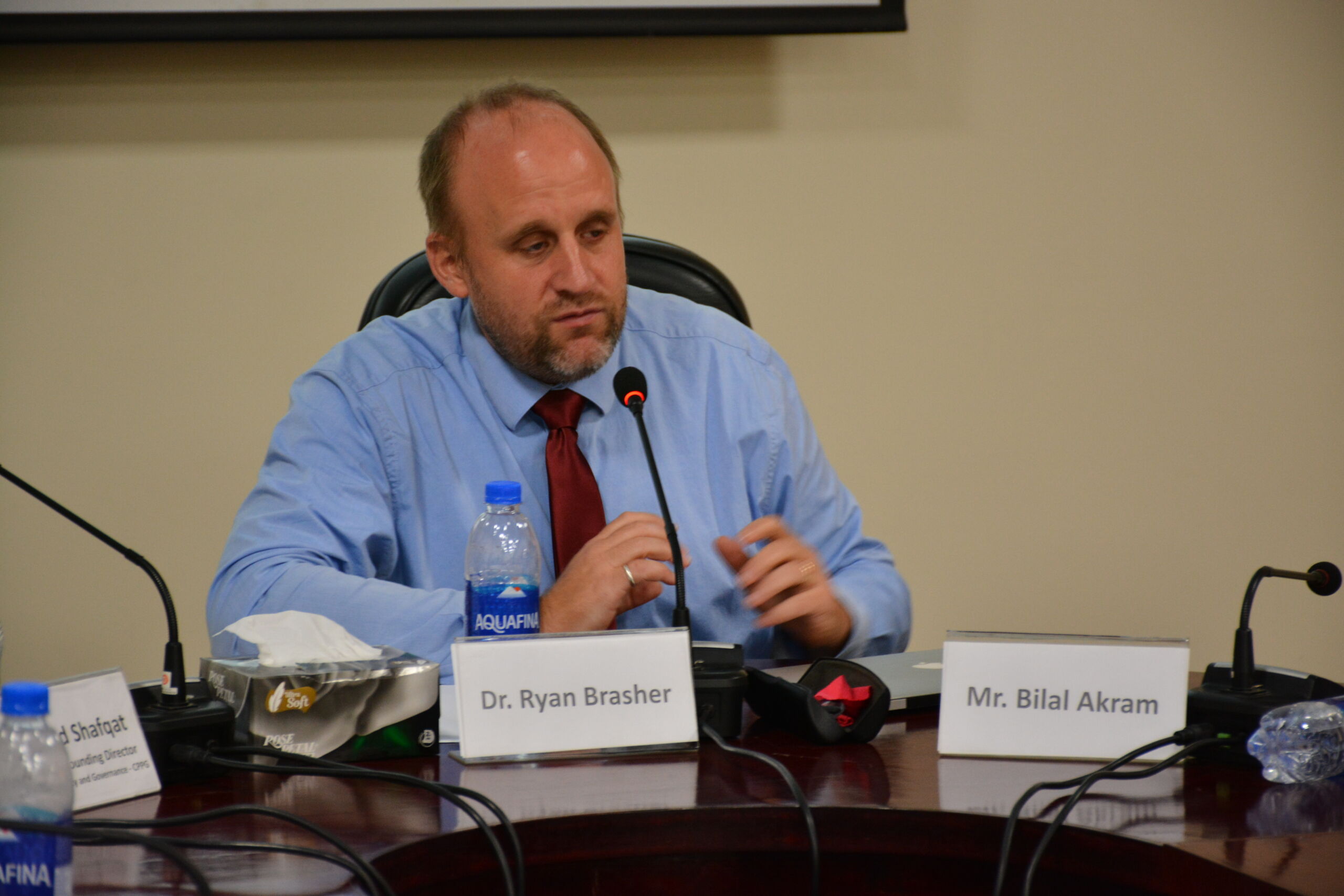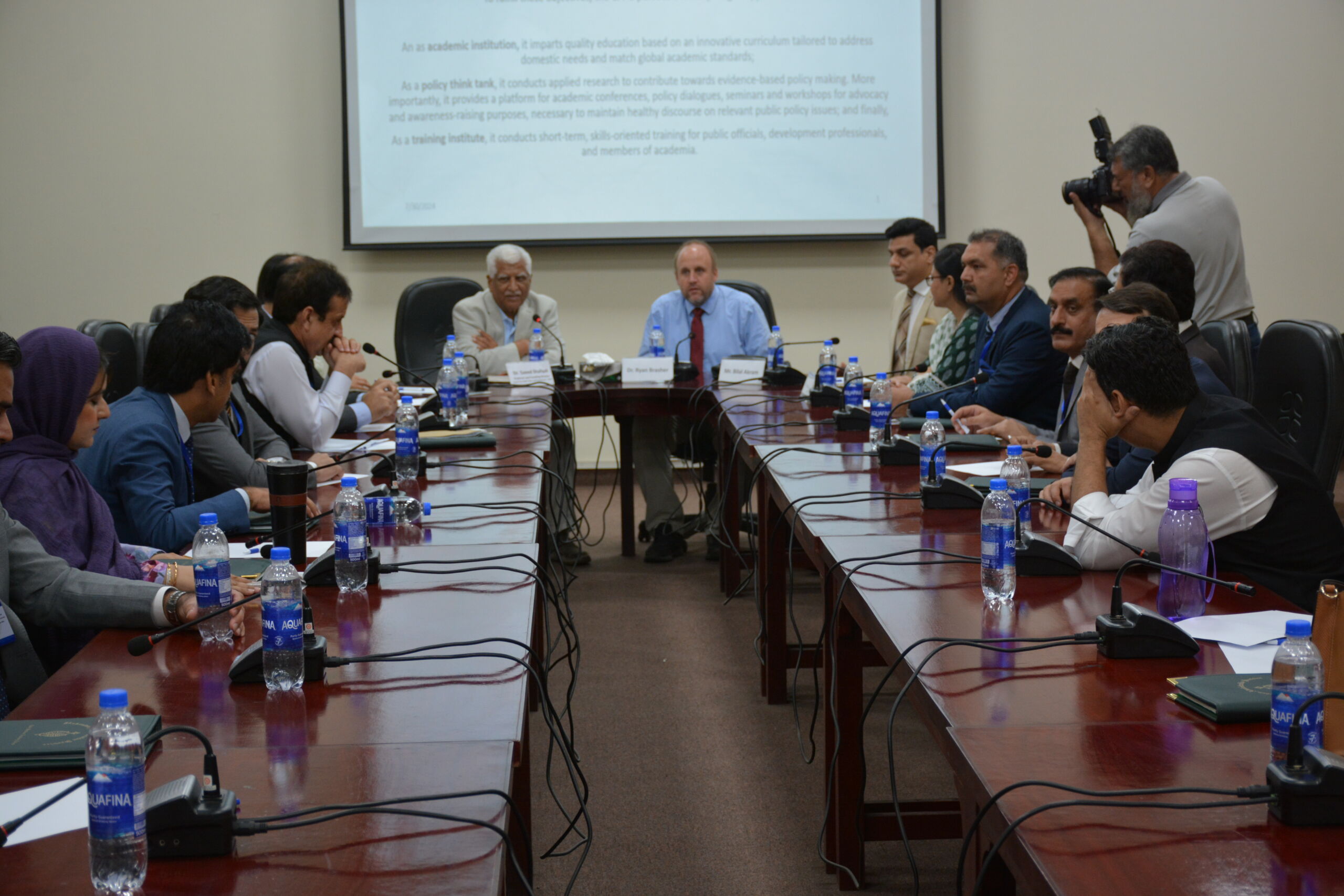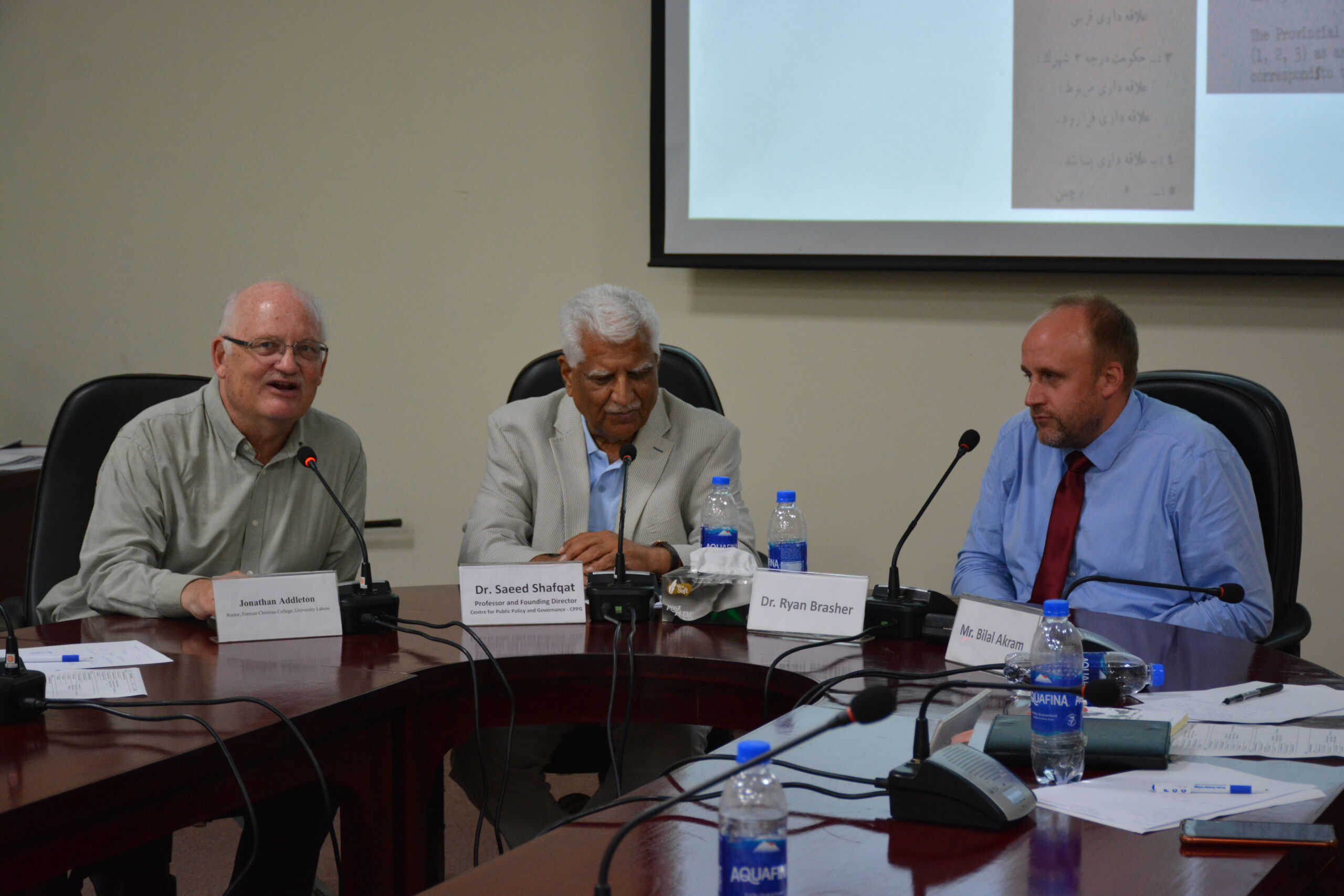
Research Methods and Policy Process
Seminar
Past Event
Jul 30, 2024 - 11:00 am |
Jul 30, 2024 - 2:00 pm
Dr Ryan Brasher
E-002 CPPG FCCU
Upcoming Event
On Tuesday July 30, 2024, CPPG hosted a seminar on Research Methods and Policy Process by Dr Ryan Brasher. He had previously served as an Assistant Professor and Chairperson department of Political Science, Forman Christian College (A Chartered University), Lahore. He is currently working as an Assistant Professor at Simpson University, California, USA. His area of research is the history and politics of Afghanistan. Having lived there for some time,
he has been able to analyze and compare Pakistan-Afghanistan and Iran-Afghanistan linkages in great detail and has been regularly producing work on the subject.
The seminar was particularly designed to assist the 10th DSMCMC (Mid Career Management Course) cohorts as part of their training. Dr Brasher explained the best practices to conduct research giving examples of his research work. For instance, he explained a researcher can be prone to a confirmation bias. According to him the empirical process of research should guide your outcomes. A researcher is not a pundit who states his personal opinions. One should have an open mind and focus on facts rather than just reconfirming a preconceived notion. Citing his work on Christian Political Participation in Pakistan, Dr Brasher said he started off with a set of assumptions and during the course of the research, some of his assumptions were confirmed while other assumptions, were refuted.
Dr Brasher then explained the importance of a good literature review in research. He highlighted the importance of having a good source that is relevant and vetted through the blind peer review process, as it is necessary that one reads comprehensively and organizes the relevant literature.
Citing another one of his works on Patriotism among Afghan Refugees in Pakistan, he explained how he did survey research using systematic sampling and convenience sampling, then using basic statistics he was able to draw degrees of comparisons in patriotism between the 1st generation refugees and the 2nd generation refugees. Through his research he was able to establish that increased levels of Urdu proficiency and education in the 2nd generation of
Afghan refugees made them more patriotic towards Pakistan whereas the 1st generation with decreased levels of Urdu proficiency and education showed an inclination towards Afghan identity.
While discussing archival research Dr. Brasher mentioned that a key difference between a historian and a political scientist is that, a political scientist uses frameworks and hypotheses to guide his archival research whereas a historian will just keep on looking at heaps of archives at length. Archival research for his PhD dissertation took him to different places that had collections of historical documents on Afghanistan and helped him a great deal to compare the different political outcomes of Iran and Afghanistan. According to him, “the British suspected Iran of joining the Nazis which is why they began spying on Iran and produced elaborate maps of roads and infrastructure in Iran. Who would’ve thought that years later those British archives on Iranian roads and infrastructure would be useful for my research.” He also pointed out that the British archives provide an interesting insight into how the Afghan region was meddled with, much like today.
The seminar was followed by a Q/A (Question and Answer) session. Dr Brasher was asked about what got him interested in Afghanistan in the first place. He recalled how as a 20-year- old he witnessed the events of 11 September 2001 unfolding in the USA, and decided to volunteer as an aid worker in Afghanistan. Spending time in Afghanistan and learning the language made him realize how the education sector there needs development and that’s what sparked his interest in the area.
When asked about who should be blamed for Afghanistan’s current situation? He said that as an academic it’s not his job to point fingers but to state facts as it is. He believes policy making is normative and dependent on the values of the person making the policy, while academia is more concerned with empirical outcomes. In Afghanistan’s case, from an objective point of view, there are plenty of bad actors. The US, the Soviets, Pakistan, and even Afghans themselves are to be blamed for the turmoil. When asked about the future of Afghanistan, Dr Brasher referred the question to Dr Jonathan Addleton, who is the Rector Forman Christian College and had spent some time in Afghanistan as the Senior Civil Representative (SCR) from the US State Department.
Dr Jonathan Addleton gave his closing remarks and recalling the time he spent in Afghanistan, he talked about how the local tribes treated the International Security Assistance Force (ISAF) as a tribe itself, it was their understanding that the ISAF was going to stay there for a long time, so they developed symbiotic relationship with them. When the ISAF left the fault lines in the region remained. For a better future and peace in the region, these fault lines need to be addressed, Dr Jonathan Addleton argued. He concluded his remarks by thanking Dr. Brasher and the CPPG for hosting and organizing the seminar.




